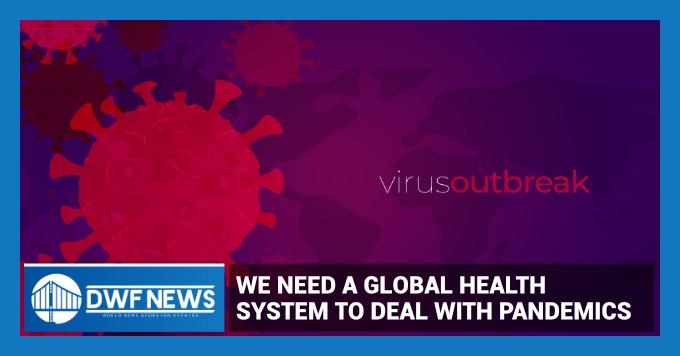Written By Josephine Borghi
Health Economist | London School of Hygiene & Tropical Medicine
April 1, 2020
Article originally published by Democracy Without Borders
The coronavirus COVID-19 outbreak has brought into focus the need for a global health system. Infectious disease outbreaks are a global problem that nation states alone cannot tackle. To minimise the damage and effectively contain an outbreak a unified global response is needed.
At present, the lack of effective coordination and oversight at a global level, means that each country’s response is a reflection of its own political and health system, which differs enormously across countries and depends to a large extent on the level of available economic and health care resources. This can result in the implementation of ineffective strategies which are at odds with international cooperation. For example, numerous countries, including the United States, have imposed travel restrictions, temporary border closures and flight bans which do not work in this case.
Pandemic preparedness is a global public good
The key issue is that health systems are currently in the domain of national governments. Yet, as becomes clear when we consider measures to curtail the spread of the COVID-19 outbreak, this means that there is a sovereignty problem because pandemic preparedness represents a global public good and aspects of its response need to happen transnationally. Examples of activities that arguably need to happen at the global level include the development of global guidelines and norms, research and development into vaccines and treatment, outbreak surveillance and early warning systems, and the management of disease transmission across borders. All these activities ideally also need to be funded and managed at the global level.
In practice, however, it has been reported that these types of activities are underfunded, and although international financing for such activities increased somewhat after the Ebola outbreak, this increase was not sustained. There is an underinvestment in these areas because these are public goods, which suffer from what we call in economics the ‘free rider’ problem: people can benefit without paying. For example, they can benefit from outbreak containment activities carried out by one country, without supporting the cost of that containment . . .
What is World Federalism?
World Federal Government (WFG)
Original Publisher
Democracy Without BordersJosephine Borghi is a Professor in Health Economics at the London School of Hygiene & Tropical Medicine. She is a health economist with 18 years experience. She has expertise in economic evaluation of maternal care interventions and my current research interest is in the evaluation of health financing reforms, including mechanisms to increase health care coverage and financial protection among the informal sector and supply side incentives such as performance based financing.
Related Articles
ARTICLES FOR THIS ISSUE: DWF NEWS APRIL 18, 2024
Israel's sickening history of crimes against humanity Dead on Arrival: Israel's Blowback Genocide Ellen Cantarow Iran puts Israel on notice The Missiles of April Scott Ritter U.S. Government Bullies Weak Nations Eric Zuesse Does Project 2025 suggest a 'Taliban...
Articles for This Issue: DWF NEWS April 4, 2024
Israel's Meddling in US Politics Is Aggressive & Unceasing Branko Marcetic Germany's economy sucker punched by U.S. The Stupidity and Vileness of the U.S. Empire's Leaders Eric Zuesse The Rapture, Armageddon, & the Second Coming No topic in...
Articles for This Issue: DWF NEWS March 21, 2024
Is the U.S. a "criminal" rogue nation? Expel the US to Rescue the UN Shahid Bolsen Middle Nation To Save Israel, US Destroys International System It Built Ramzy Baroud Consortium News The Earth Constitution Could Transform the UN General Assembly and the UN...
Solving Global Problems
We can work together to make the world better

